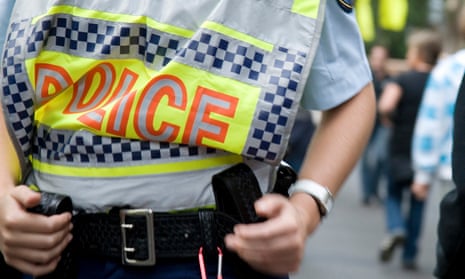The New South Wales coroner will push for the state’s police force to release its strip search protocols as part of an inquest into drug-related deaths at music festivals.
Counsel assisting the coroner Peggy Dwyer told the court on Thursday that the inquest had yet to receive “police protocols” on when strip searches could be carried out in the state, but that she intended to pursue the matter .
“That issue is something that, in my respectful submission, should be clearly understood by the families of the young people who are involved in the inquest and by the general public at large, under what circumstances are police entitled to strip search patrons who are entering,” she said.
The issue of strip searches at music festivals has risen a number of times during the inquest, which is examining the deaths of six young people from MDMA toxicity at musical festivals between December 2018 and January 2019.
Last week a witness cried while describing how a police officer told her she would make a strip search at a music festival “nice and slow” if she did not tell her where she was hiding drugs.
David Caldicott, the emergency doctor and pill-testing advocate, described the practice as “unconscionable”.
“It has no health benefit, as far as I’m concerned, and it’s got considerable mental health issues associated with it,” he said last week. “Colleagues of mine in the UK find it extraordinary that it is happening in a first-world country.”
Last month the Sydney Morning Herald revealed details of officers breaching strip search powers, as well as police using inconsistent rules at various music festivals.
Dwyer’s comments on Thursday came during the cross-examination of detective chief inspector Gus Viera, who was the police commander at the Knockout Circuz festival in December 2017.
Sydney man Nathan Tran consumed multiple MDMA capsules and died at the event.
On Thursday Viera – who said he had acted as an officer at about 20 music festivals dating back to 2010, including the Big Day Out and Stereosonic – said that when he was working at a music festival he always tried “to get as many drug dogs as I can.”
Viera gave evidence that at the Knockout Circuz event police searched 298 people, 69 of whom were found to have drugs on them.
Only six of them were carrying quantities that amounted to supply offences.
Asked by Dwyer whether police aimed their drug dog operations at suppliers, Viera said that was not possible.
“I don’t know if I can really answer that question, we will target whoever has drugs on them whether that’s supply of possess,” he said.
Viera told the inquest he did not like music festivals, and wanted police to have the power to close festivals early when public safety is at risk.
“It’s all bad,” he told the inquest. “As a father to two daughters, I wouldn’t let them go. So no, I’m not a fan at all.”
Viera told the inquest that on the night of Tran’s death the director of medical service provider EMS, Mike Hammond, told him that though he believed he had stocked enough equipment for an event twice the size of Knockout Circuz by 10.30pm the provider was at capacity.
The coroner has previously heard other criticisms of EMS, which provided care at all five of the festivals which are the subject of the inquest.
On Monday Guardian Australia reported that independent expert had found that a 23-year-old man who died at the Defqon.1 music festival last year may have survived if he had received better care at the event.
